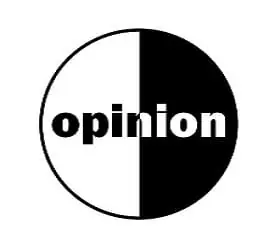Disasters bring out the worst in some humans. Hateful online comments by snarky people is just plain wrong. Expressing an assertive opinion has its place, but tantrum Tweeting is ridiculous. And like poison ivy, toxic tongues spread their irate rashes.
People, you are not the self-deputized pandemic police. So stop naming and shaming others on the internet. Stop the digital disgrace. Stop the coronavirus caterwauling.
“We live our lives supposing things are as they appear to be when that is almost never the case.” ― Richelle E. Goodrich, Slaying Dragons
The term “covidiot” was authored by a judgmental individual calling out social distancing violations. On Twitter, #covidiot whirled with vicious vibes. Pandemic shaming and COVID-19 blaming has flooded the internet. A public finger-pointing frenzy continues to spread across social media. Throwing stones, tiresome trolls hurl insults at improper pandemic practices.
It’s one thing to throw well-deserved and rational comments at asinine attorneys, prickly politicians, and power-hungry police, but leave regular citizens alone. Government messages are confusing and most of us are doing the best we can during the quarantine confinement.
“Faultfinders usually are not content with their own situations in life and therefore try to make others miserable by judging them.” ― Greg Gordon
While some criticize out of fear, others operate out of revenge. COVID-19 is a serious coronavirus and we must be cautious and concerned, but not panicked. Citizens are not germ agents—spying on strangers or neighbors. Citizens are the foundation of a community.
“If you are someone who is quick to judge others for their behavior—maybe they are in a bar or any public area where you believe they shouldn’t be, and you are going to publicly shame them digitally—take the time to reconsider.
Maybe they have a reason to be there or maybe it’s none of your business,” surmises Sue Scheff, author of a 2020 article in Psychology Today and the book, Shame Nation: The Global Epidemic of Online Hate (2017).
Scheff continues, “Living in an aim-and-shame society. Maybe a person is in a public place such as a bar (though people are being told to stay home) waiting to pick up food? Maybe they are delivering supplies to the establishment.
Could someone have been hired to fix a broken pipe? A person doing a good deed could potentially be cyber-shamed because someone was quick to make a rash judgment, thinking they were saving the world.” Visit www.psychologytoday.com.
By all means, report price gouging and criminal wrongdoing to authorities. Scammers crawl from underneath their rocks to take advantage during declared disasters.
Shaming, naming, and blaming via the world wide web during the pandemic will not motivate others to be more diligent. We can provide information, education, and knowledge, but snarky is out of line. Type and text with a managed mouth, a tamed tongue, and forthright fingers.
“If anyone should change their behavior, I thought, it ought to be those doing the shaming.” ― Jon Ronson, So You’ve Been Publicly Shamed
Melissa Martin, Ph.D. is an author, columnist, educator, and therapist. She lives in U.S.


